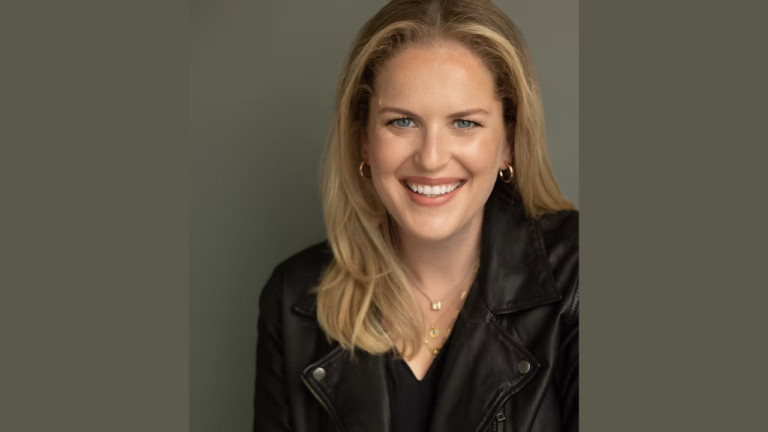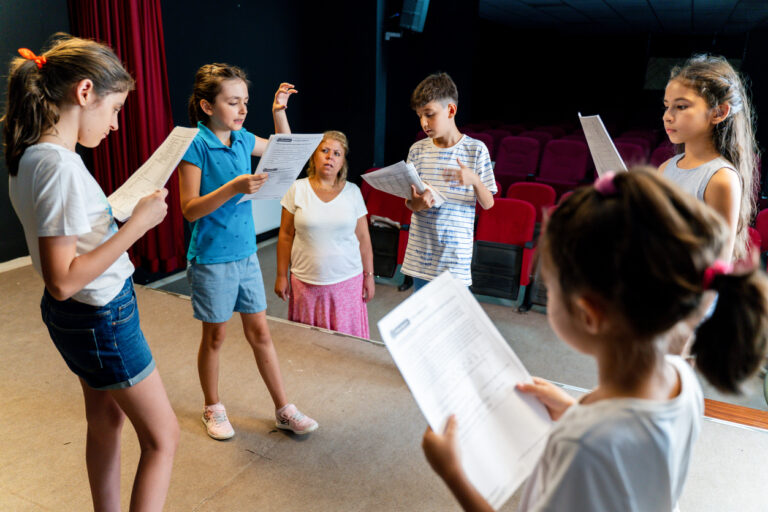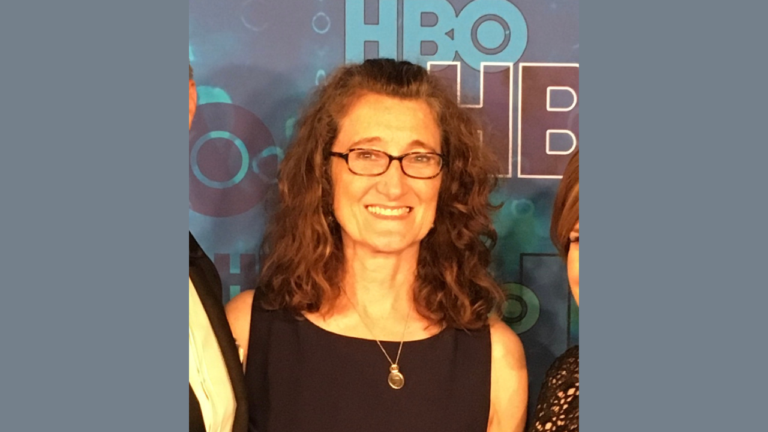Most actors treat winter like a career deep freeze. Yet while productions slow down and the holidays carve into everyone’s schedule, pilot season is secretly gearing up. But that’s not all.
December through February is one of the highest-volume seasonal markets for paid acting work. Holiday attractions, immersive pop-ups, winter festivals, brand activations, family entertainment, theme-park events, short-form social campaigns and last-minute voice-over projects all spike. Corporations plan Q1 rollouts. Nonprofits produce winter galas. Podcast networks rush to meet early-year deadlines. The gig economy triples, yet many actors don’t know these markets exist.
Think of the winter season as a money window: a concentrated hustle period where actors who prepare early and pitch strategically can earn more in twelve weeks than they did all summer.
Key Insights
- A short, warm, easy-to-skim submission paired with a compact reel dramatically increases booking odds in specialized seasonal markets.
- Winter is a high-volume, fast-turnaround season filled with paid opportunities in immersive entertainment, corporate activations and audio work.
- Most winter jobs hire quickly and directly, rewarding actors who pitch early, stay flexible and maintain strong availability.
1. The Winter Market: Why It’s Booming (And Why Actors Miss It)
Winter is the season of compressed timelines and sudden needs:
- Holiday and New Year’s pop-ups need talent almost immediately.
- Immersive events (light shows, Santa villages, ice-castle experiences, escape rooms) rely heavily on performers.
- Corporate brand activations launch early in the year, needing actors for demos, social content and spokesperson roles.
- Podcasts and audio dramas release first-quarter episodes and scramble for voice-over talent in December.
- Fall festival wrap-ups transition to winter specialty gigs, such as tree-lighting ceremonies, Santa workshops and winter markets.
- Theme parks and museums open winter programming.
- Retail campaigns push January/February “New Year, New You” marketing.
- Educational companies push out winter curriculum videos and online courses.
Actors often overlook this window because:
They assume “nothing films in December.”
- They’re traveling or focused only on pilot prep.
- They don’t realize seasonal entertainment is a professional industry that hires trained performers.
- They rely solely on agents instead of pitching themselves to attractions, venues, producers and studios that cast independently.
If you want winter income, the first mindset shift is simple: Winter isn’t slow. It’s specialized. And specialized markets reward actors who know how to navigate them.
2. Holiday Attractions & Immersive Gigs: The Most Overlooked Goldmine
If you want steady work from December through New Year’s (and even into February), start with immersive attractions.
What Counts as an Immersive Winter Gig?
- Holiday villages
- Drive-through light shows
- Themed ice bars
- Tree-lighting ceremonies
- Winter carnival emcees
- Santa meet-and-greets
- Caroler troupes
- Snow-queen/magician/elf characters
- Ice kingdom story worlds
- Hotel holiday programming
- Seasonal pop-ups (snow globes, cozy cabins, cookies-and-holiday-movie rooms)
Why These Jobs Pay Well
- They need performers daily, or multiple times per day.
- Talent turnover is high — they always need actors.
- Most hire directly — not through agents.
- Many include overtime, holiday pay or flat-rate bonuses.
How to Book Them
Start pitching in November (or even October), with a follow-up in December when performers start dropping out.
Your pitch should include:
A short email (100-150 words) with:
- A character-based headshot
- A friendly, branded image (warm, winter, holiday feel)
- A quick reel (30-45 seconds) showing character work, hosting or improv
- A note about your availability through New Year’s
Example Pitch Line:
“I specialize in warm, welcoming, high-energy character work, and I’m fully available for December-January programming.”
Actors who submit early get first pick. Actors who submit late get last-minute emergency calls, which often pay more.
3. Brand Activations: January + February = Actor Payday
January is a massive launch month for:
- Gyms and wellness brands
- Tech rollouts
- Financial and insurance “Start the Year Smart” campaigns
- Beverage and beauty companies
- Auto dealership incentives
- Corporate pop-ups at malls, arenas, winter festivals
These activations need:
- Hosts
- Crowd-engagement talent
- Product demonstrators
- Brand spokespeople
- Actors for short social ads
- Micro-sketch performers for TikTok/Reels campaigns
Why These Pay Well
Corporate budgets renew in January. If your timing is right, you’ll catch the wave of fresh funding.
Where to Find These Jobs
- Always check Casting Networks first
- Experiential marketing agencies
- Creative event producers
- Corporate event planners
- Branded pop-up chains
- Car shows, home shows and trade events
- PR agencies running New Year campaigns
Pitch Tip
Make a brand reel (30-45 seconds):
- Warm intro
- Confident speaking clip
- Product demo moment
- Say: “If you’re looking for a presenter with strong improv and crowd-warmth, I’m available for winter activations.”
Brand activations love actors who can be personable without being “salesy.” If you’re friendly and articulate, you’re golden.
4. Voice-over Spots, Podcasts & Winter Audio Work: Fast, Remote and Lucrative
Audio is one of the most reliable winter markets because:
- Production companies rush to finish Q1 podcasts before holiday hiatus.
- Advertisers push out holiday and New Year ad copy.
- E-learning and corporate training teams update annual modules.
- Animation studios cast for spring/summer episodes now.
- Streaming networks release specialty holiday audio content for kids.
December-February is peak VO for:
- Holiday commercials
- Winter event promos
- New Year campaigns
- Wellness apps
- Fitness and lifestyle subscription reads
- Children’s winter-themed audio stories
- Educational curriculum voice-overs
- Podcast guest characters
- Audio dramas needing “sound bank” voices before March
How to Prepare Fast
Have these ready:
- A 60-90 second commercial reel
- A 60-90 second character reel
- A clean, quiet remote recording setup
- A one-sheet with your vocal range, accents, turnaround times, gear
Pitching Tip
Producers LOVE actors who can record same-day in December.
Add this line to your outreach:
“I’m able to turn around high-quality VO within 12-24 hours during the holiday season.”
That line alone may triple your bookings.
5. Last-Minute Opportunities: The Winter Scramble
Winter has more “We need someone TONIGHT/TOMORROW” casting than any other season.
Why?
- Actors cancel holiday-week gigs.
- Weather problems cause talent dropouts.
- Producers miscalculate crowd sizes.
- A performer gets sick mid-run.
- A client suddenly demands an extra character/role/host.
These jobs usually pay:
- Premium day rates
- Rush fees
Make sure you’re listed as:
- Local hire for winter attractions near you
- On-call talent for immersive venues
- Available for same-day auditions/voiceover
6. How to Pitch Yourself in the Winter Market
Most winter jobs are cast by smaller teams who don’t have time to sift through long submissions. Keep it short, warm and extremely easy to understand.
Your Pitch Email Formula (Copy/Paste)
Subject: Winter Talent – High Energy, Fully Available (December-February)
Body:
Hi [Name],
I’m an actor with strong improv, hosting and character experience, and I’m available for winter programming (December-February). I’m great with families, crowds and interactive environments. My reels are below, along with a festive look.
- 30-sec character reel
- 30-sec hosting/brand reel
- VO sample (optional)
- Link to résumé and photos
If you’re still filling holiday, New Year’s or winter activations, I’d love to be considered.
Warmly,
[Name]
[Contact]
[Social/Website]
Why It Works
- Short
- Specific
- Reads like a human
- Easy to skim
- Emphasizes availability (huge for seasonal casting)
7. Rates, Contracts & Negotiation: Don’t Underprice Yourself
Many actors assume seasonal = low pay. Well, not really. A lot of winter work has corporate budgets behind it.
Normal Winter Pay Ranges (General Guidance, only to be used as a negotiating reference)
- Immersive holiday roles: $20-$60/hr
- Event hosting: $300-$800/day
- Brand activations: $350-$1,200/day
- VO holiday ads: $250-$1,000+ depending on usage
- Corporate training voice-over: $300-$600/hr
- Seasonal theme-park roles: $1,000-$1,800/week
- Kids/family entertainment events: $100-$300/event
When to Ask for More
You’re replacing someone last minute.
- Weather is extreme.
- You’re outdoors for hours.
- You’re performing physically demanding work.
- You’re performing as a recognized character/IP.
- Hours exceed the original contract.
- You’re on your feet the entire time.
- You’re using your home studio for quick-turnaround voice-over.
Ask flatly: “Is there any flexibility in the rate, given the last-minute timing and the demands of the role?” Nine times out of ten, the answer is “Yes, we can bump you.”
8. Contract Essentials: Protect Yourself in Winter Conditions
Seasonal gigs often skip formal contracts or use generic event templates. Don’t let that slide.
Your agreement should specify:
Weather policy
If the event is outdoors, clarify:
- Cancellation procedures
- Weather pay
- Safety requirements (heat lamps, indoor breaks, etc.)
Costume expectations
Are you required to provide:
- Your own coat?
- Gloves?
- Footwear?
- Makeup?
- Wig pieces?
- Waterproof gear?
If the costume isn’t warm enough, request: “I need adequate cold-weather layers underneath for safety.” (Bring your own extra layers so you don’t need to ask the production.)
Hours & breaks
Winter events often run long and get chaotic. Make sure the break schedule is clear.
Usage rights (for brand activations)
Clarify:
- Where your image is used
- For how long
- On what platforms
- Renewal fees
Safety & working conditions
Especially important for:
- Nighttime outdoor events
- Ice or snow environments
- Heavy crowds
- Strobe-lights
- Fire pits or pyrotechnics
- Animals (reindeer, sled dogs, horses)
If something feels unsafe, say: “Before confirming, I’d like to review your safety protocols for cold-weather performance and crowd management.” This shows professionalism, not difficulty.
9. Your Winter Reel: What Actually Books Work
You don’t need a long reel.
Seasonal casting directors care about:
- Warmth
- Energy
- Character ability
- Hosting confidence
- Family friendliness
- Clear speaking
- Approachability
Build a Simple “Winter Reel” in 45 Minutes
- Open with a warm greeting (10 seconds)
- Show a clip of you hosting or speaking confidently (10 seconds)
- Add a short character moment (Santa helper, winter storyteller, etc.) (10 seconds)
- Close with an improv line that shows humor and personality (5 seconds)
Total: 35-40 seconds. That’s all casting needs!
If you step into the “Winter Money Window” with intention, you can book December-February as one of the most profitable stretches of your year — and start spring with momentum that other actors only wish they had.
Key Takeaways
- Treat December–February as a concentrated earning window where targeted outreach leads to steady, well-paid work.
- Protect your time and safety with clear contracts covering weather, breaks, costume expectations and usage rights.
- Build a short winter-specific reel that emphasizes warmth, energy, character ability and confident speaking to stand out instantly.
You may also like:













